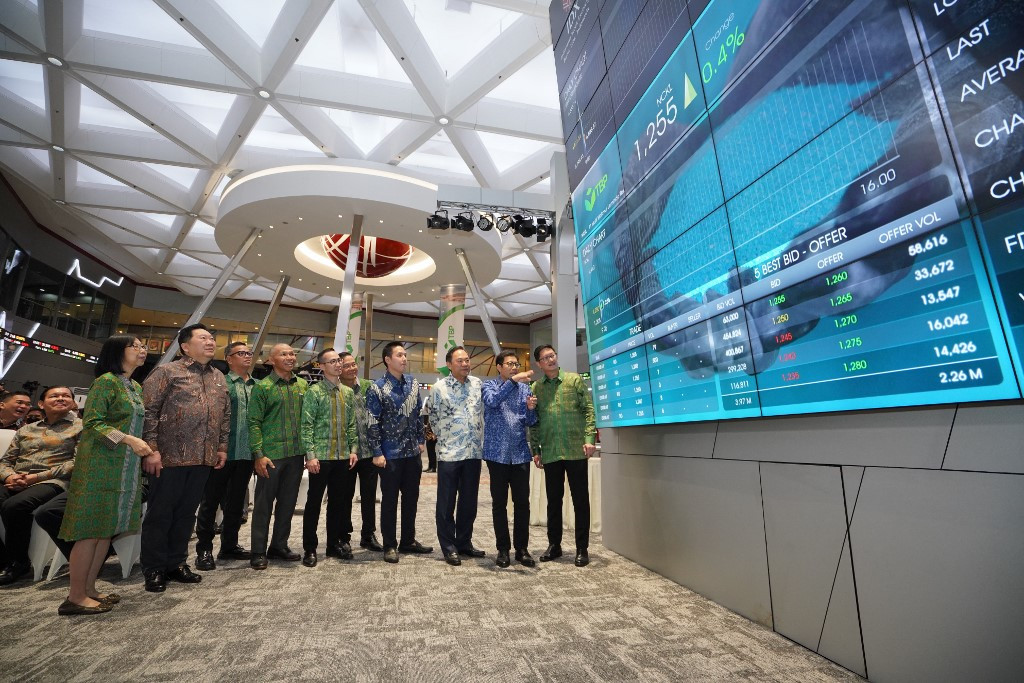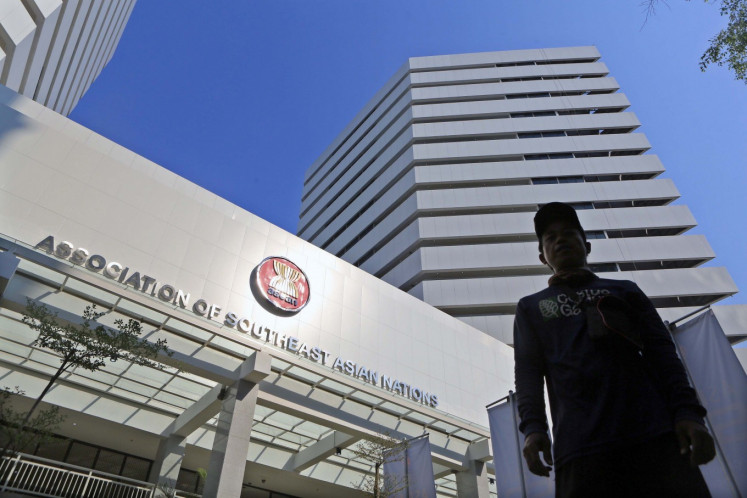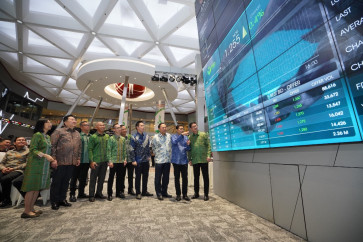Popular Reads
Top Results
Can't find what you're looking for?
View all search resultsPopular Reads
Top Results
Can't find what you're looking for?
View all search resultsAligning critical minerals policies with ASEAN energy transition
ASEAN countries might want to come up with more incentives to boost added value in their downstreaming industries amid the global shift to cleaner energy, which has increased demand for critical minerals and mining output.
Change text size
Gift Premium Articles
to Anyone
 Roy Arman Arfandy (right), president director of PT Trimegah Bangun Persada (NCKL), the nickel subsidiary of Harita Group, stands along with members of its board of directors on April 12, 2023 to view an electronic display showing its shares during its initial public offering (IPO) at the Indonesia Stock Exchange (IDX) in Jakarta. (AFP/PT Trimegah Bangun Persada)
Roy Arman Arfandy (right), president director of PT Trimegah Bangun Persada (NCKL), the nickel subsidiary of Harita Group, stands along with members of its board of directors on April 12, 2023 to view an electronic display showing its shares during its initial public offering (IPO) at the Indonesia Stock Exchange (IDX) in Jakarta. (AFP/PT Trimegah Bangun Persada)
I
n 2022, the market size, exploration and investment for minerals that are key to the energy transition expanded globally, driven by rising demand and high prices. Global energy investments in clean energy significantly increased in 2015-2023, surpassing fossil fuel investments.
It is important to note that the stability of mineral markets and the availability of essential mineral sources will have a major impact on how quickly the energy transitions will occur.
By 2030, critical materials for clean energy technology would increase 3.5 times, dominated by nickel, cobalt and lithium. These materials are among those for which clean technology innovation and investment remain essential, particularly for the development of electric vehicles (EV) and renewable power generation, according to the World Energy Investment 2023 of the International Energy Agency (IEA).
Regionally, ASEAN aims to achieve 35 percent of installed renewable energy capacity in 2025 and declare a regional EV ecosystem.
Meanwhile, a study by the ASEAN Center for Energy (ACE) estimates that the installed capacity of renewable energy had reached 33.3 percent in 2022, and that this figure will increase to 41.5 percent by 2025. It also projects that the region’s EV fleet will reach 2.5 percent in 2025.
However, most energy transition technologies require a huge amount of critical materials. Fuel cell production needs up to 14 types of key materials such as cobalt, copper, rare earth elements (REE), nickel and iron.
Others like EV battery, solar photovoltaic (PV), wind and hydropower technologies also require a significant ramp-up in mining activities. To meet this demand, investment of US$360-450 billion in minerals production infrastructure is needed over the next three years to increase output capacity.

















